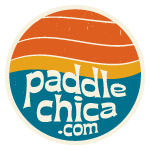So, you’ve found yourself wonderfully addicted to dragon boating. Welcome to the club. It’s an excellent group made up of athletic, competitive individuals who enjoy the challenge of a sport that takes weeks to learn and years to master. No matter where you are in your paddling career, you can benefit from these helpful reminders of ways to take care of your paddling obsession. 1) Do Your Homework Thought you outgrew homework when you graduated? Not so. Learning is a lifelong process. We don’t grow if we aren’t learning and this couldn’t be
If you are anything like me, you go through periods in your training where you might feel a bit stuck. No matter how hard you’ve been training nor how focused you are, you feel like you aren’t making progress. It can be frustrating, no doubt. Here are 10 things to keep in mind the next time you are feeling sluggish in your paddling development. 1) Feeling stagnant is a sign that it’s time for a change. Whether it’s a change in your diet, a change in your workout routine, a change in the frequency of
Ringers. A delicate topic full of opinions and emotion. There are at least as many points of view on this issue as there are dragon boat teams. A “ringer” is defined as a highly proficient person brought in to supplement a team or group. Some teams use them, other teams are staunchly opposed. Whether your team uses so-called “ringers” or not, it is important to understand the rationale for using them. In a talk given by Canadian National Team coach Albert McDonald at Jim Farintosh’s Bow Wave camp in April, Albert explained how teams
We all want to be better at paddling. We spend hours training both on and off the water. We push to become better and develop our individual selves. However, dragon boating is a team sport that requires the collective efforts of the club. So, what habits can you incorporate into your discipline that will not only help you, but also help your team? Here are 10 principles to adhere to in order to be a better teammate. 1) Listen to your coach. Listen to the coach’s feedback. Not just when it’s directed
We all know that paddling is a great workout, but there is a distinct difference between being in shape to paddle and using paddling as your primary method of getting in shape. Quite often, newbies join a dragon boat team to lose weight and/or get fit. That is actually what I did many years ago. I was looking for a way to get out on the gorgeous water in Miami and get in a good workout at the same time. True, for many people being out on the water with teammates is often more fun
Whether you are new to paddling or a veteran on the boat, if you are serious about the sport of dragon boating you are continuously seeking out ways to elevate your paddling ability. Approach your training as a learning opportunity and focus on each practice session as a chance to develop your skills. Here are three elements of training that every paddler should embrace: Progress Your training is a continuous journey towards a goal (or multiple goals). Depending on your individual progression, you will inevitably have peaks and valleys in your training. But
Coaches are a vital part of every team. The team’s trainer, teacher, mentor, negotiator, problem solver, motivation provider, facilitator, and organizer; a coach is a vital part of the team. Sometimes coaches can be a bit intimidating, especially when you are new to the team. We look up to our coaches, not only because they are selecting the race crew, but also because they hold such in-depth knowledge of the sport. Having a conversation with the coach might not always be easy, but open communication with your coach is essential to your
What’s With the OC1 Time Trials for Dragon Boat Crews? So much time and energy goes into debating the question: “How will we select the best paddlers for the race crew?” I can assure you, your coaches and/or captains lose sleep on this question and realize that you are also losing sleep over this question! That’s partly why there is so much variation in how crews conduct their selection exercises. Some crews run trials where a pair of paddlers must move the whole dragon boat together over a distance; some crews introduce
Think back to your first day on the dragon boat. Chances are, you were given a paddle, a life vest, and a whole boatload of directions. Do you remember much of what was said to you? Probably not. If you were anything like me, your whole focus was on NOT clanking paddles with the people around you. It’s a wonder I even came back for more. Forget about technique. Just getting my timing down was a bonus. How can you help a new paddler through those times when the pain and desperation of paddling make a person want to
Face it, being an active part of a dragon boat team requires a certain amount of commitment. Practices, gym time, races, committees, recruiting, fund raising. All of these things take time out of our regular lives. We wouldn’t do it if we didn’t love the sport so much. But at what point did you take vows to love, honor and cherish your team? We might not remember exactly when we got married to our team, but for the love of the sport most of us have said “I do” at one point or

